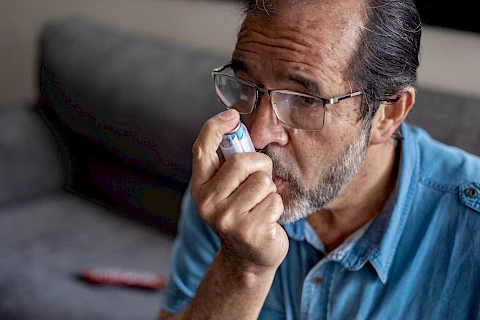
Respiratory Care Week highlights the importance of focusing on senior lung health. The respiratory system can become more vulnerable to various conditions with age, posing significant risks to older adults. Prioritizing senior respiratory health is integral to maintaining lung function, preventing serious complications, and promoting long-term health in the golden years.
Common Respiratory Issues in Older Adults
The respiratory system becomes more vulnerable with age, increasing the risk of various conditions. Common issues in older adults include:
- Chronic Obstructive Pulmonary Disease (COPD): COPD is a group of diseases that cause airflow blockage and breathing problems. It includes emphysema and chronic bronchitis. Seniors with COPD may experience shortness of breath, wheezing, and chronic cough.
- Pneumonia: This infection inflames the air sacs in one or both lungs. For seniors, pneumonia can be quite severe. Symptoms include fever, chills, shortness of breath, and chest pain when breathing.
- Asthma: A condition that narrows the airways and increases mucus production, asthma makes breathing difficult. Asthma symptoms can include wheezing, coughing, and shortness of breath.
- Pulmonary fibrosis: Pulmonary fibrosis causes scar tissue to form in the lungs, making it hard for them to work properly. Over time, seniors with this condition may find breathing increasingly difficult.
Promoting Senior Lung Health
Aging leads to changes in lung function. The muscles and tissues supporting the lungs weaken. The airways can sometimes become less flexible, reducing lung capacity. Regular physical activity, such as walking, swimming, tai chi, or light aerobics, can improve lung capacity and overall fitness. Remember to consult a doctor before introducing seniors to a new exercise routine.
A balanced diet of fruits, vegetables, and whole grains provides essential nutrients to keep the lungs healthy. Antioxidants in these foods fight inflammation and support lung function.
Advise seniors to avoid smoking and vaping and stay away from secondhand smoke, as it's very harmful to the lungs. Vaccines like the flu shot and pneumonia vaccine can prevent infections that might harm the lungs. Ensure your loved one stays up-to-date with their shots.
Keep the home clean, use air purifiers, and allow proper ventilation. Avoid using harsh chemicals, and keep an eye out for mold. Breathing exercises, like pursed-lip breathing and diaphragmatic breathing, can also strengthen the lungs and improve breathing efficiency.
Recognizing When Additional Support Is Necessary
Knowing when your loved one might need extra help can prevent complications and ensure timely treatment. Watch for signs like persistent coughing, wheezing, shortness of breath, or unusual fatigue, which could indicate something serious. Don't hesitate to seek medical help if you notice any signs of respiratory distress. Early intervention can make a big difference in treatment and recovery. Ensure your loved one receives regular check-ups to stay ahead of potential respiratory issues and maintain their overall well-being.
Maintain Senior Lung Health With Senior Helpers’ Support
Taking proactive steps in maintaining senior lung health can lead to better health outcomes for your loved ones. If you need additional support caring for a senior loved one, we can help. Senior Helpers Metro Portland North provides personalized home care solutions, including meal planning and preparation, transportation and appointments, and more. Contact us for tailored senior care solutions in Portland, Beaverton, Gresham, Hillsboro, or Troutdale.